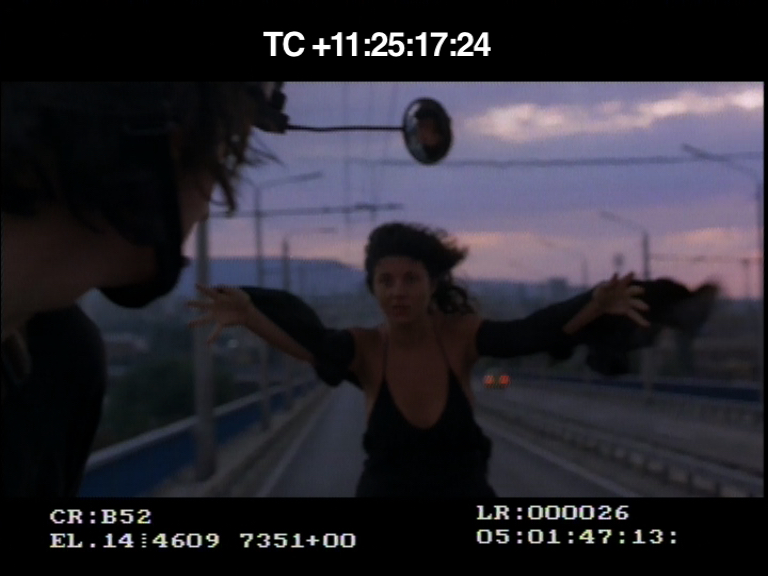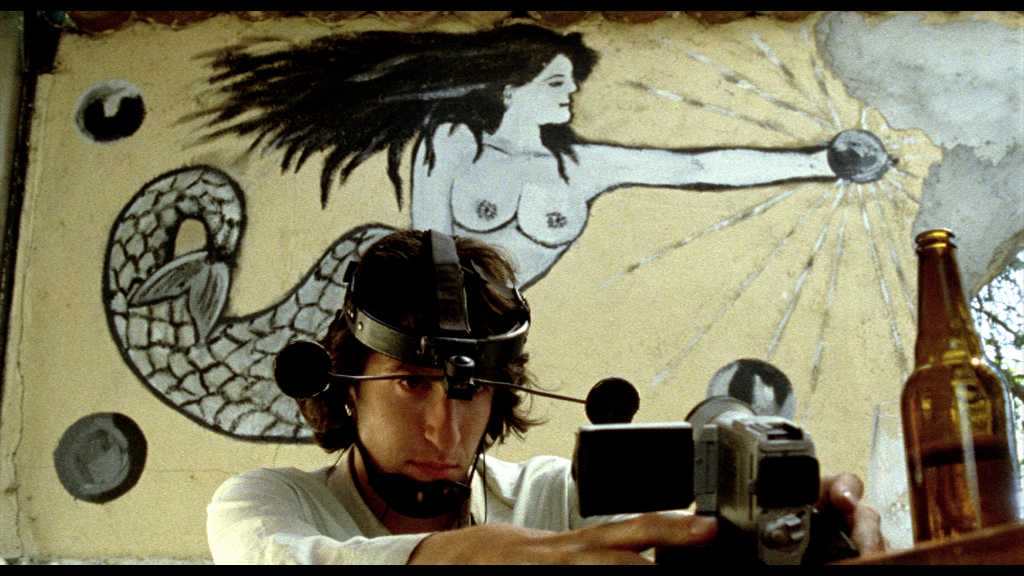Moon Lake has to be viewed more than once not just because it is different at each viewing but because it incorporates its theme and its making into the viewing itself. This is a film that comes after itself, it leads itself the way Orpheus leads Eurydice: with all its sensuousness and although it rubs itself against our gaze like the lunar body of a dreamt of mermaid, it takes place after an interval, after the withdrawal of the gaze, from behind your back, from the position of an invisible overtaking.
I turn back to look – and it keeps coming.
Miglena Nikolchina – THE COMING FILM

Although true, it is not enough to say that the film is beautiful. The film is very demanding of its spectators in a controlled manner, one that may put a strain on them. Words in different languages can be heard throughout the film – English, French, Greek, etc. Expressing both poetical and philosophical ideas, it is not enough to understand these words. But rather, they seem to have been let loose into the free space under the vault of the sky where they soar freely and occasionally return to those who uttered them.
Distilled to the world’s extremes, Moon Lake works with earth, water, sky (air), wood, and metal – it operates with the elements from which, according to the Chinese, the world was created. It is shot entirely outdoors – it is open to the upper and to the lower – and to remind you once again, in those lands that are inscribed into the memory of origin, in this case, Ivan Stanev’s origin. But also the origin of all of us humans, from Ancient times to our present moment.
Albena Stambolowa – MEMORY WORLD

There is seemingly no plot. There is a cloud of key words: sinus amoris, a gigantic clash, strings, a supernova, the twin paradox, a ship. There is a host of names: Nerval, Blanchot, Poe, Rilke, Plato, and Eliot. There are roaming, ghostly couples, whose horizontal routes almost never cross – they are no different than space objects in strange constellations. The apocalypse is already there (it has always been there), just like the ship of salvation.
The listeners do not hear, the onlookers do not see. Only the disoriented mermaids make the foolish mistake to cross the borders of their world and perish in ours, due to disturbances in their perception. And Orpheus, otherwise vigilant, almost constantly looks backwards.
He looks like an animal, eats like an animal, and howls like an animal. The animal is, however, sad.
Rajna Markova – INCREASINGLY IMPOSSIBLE ADVENTURE
